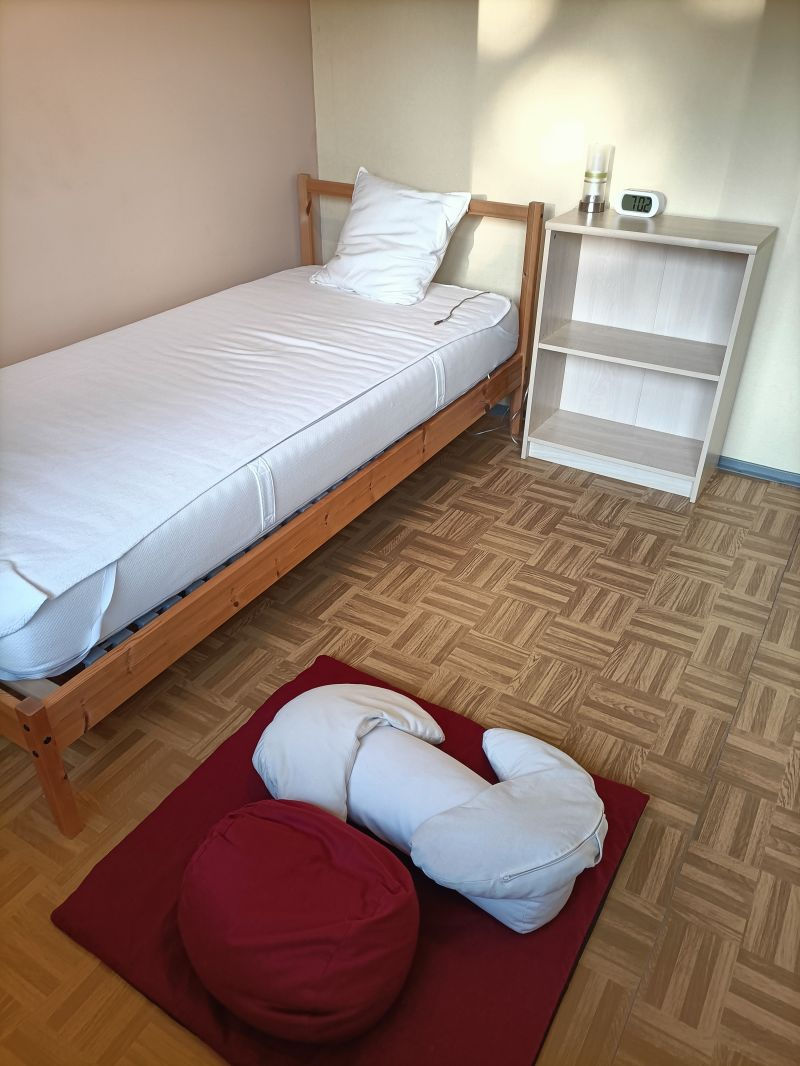Burnout 101: My answers to all your burning questions about burnout
- Ling Shi
- May 20, 2024
- 6 min read
Updated: Jun 22, 2024
Burnout is a hot topic these days. With our fast-paced lives and demanding jobs, many of us are feeling more overwhelmed than ever. This blog post will answer all your burning questions about burnout in a professional yet fun and down-to-earth way. Let's dive in!
What’s Burnout?
Burnout is a state of emotional, physical, and mental exhaustion caused by excessive and prolonged stress. It happens when you feel overwhelmed, emotionally drained, and unable to meet constant demands. As the stress continues, you begin to lose the interest and motivation that led you to take on a certain role in the first place.
Burnout’s Impact and Cost to Our Society
Burnout doesn't just affect individuals; it has a huge impact on our society. It can lead to decreased productivity, higher absenteeism, and increased healthcare costs. In fact, burnout can cost businesses billions of dollars each year in lost productivity and employee turnover. On a personal level, burnout can lead to serious health problems, including depression, heart disease, and diabetes.
Difference Between Stressed and Burned Out
It's important to know the difference between being stressed and being burned out. Stress is usually short-term and can be caused by a specific situation. When the situation is resolved, the stress usually goes away. Burnout, on the other hand, is a state of chronic stress that leads to:
Emotional exhaustion
Detachment or cynicism
A feeling of reduced personal accomplishment
Signs That You Are at the Verge of Burnout
How do you know if you're about to burn out? Here are some signs to watch for:
Constantly feeling tired or drained
Lack of motivation and interest in your work
Feeling increasingly cynical or negative
Trouble sleeping
Physical symptoms like headaches or stomach problems
Feeling like you're not making a difference or that your work doesn’t matter
Common Misconceptions of Burnout
Despite its prevalence, there are several misconceptions about burnout that need to be addressed:
Burnout Only Happens at the Workplace:
While work-related stress is a common cause of burnout, it can also occur in other areas of life, such as relationships, caregiving responsibilities, or personal endeavors. Burnout can stem from any situation where there is chronic stress and an imbalance between demands and resources.
Burnout Can Be Recovered by Taking a Vacation or Two Weeks Off:
While taking time off can provide temporary relief from burnout symptoms, it's often not enough to fully recover. Burnout is a complex condition that requires addressing underlying stressors and making sustainable lifestyle changes. Simply taking a vacation may provide short-term relief, but without addressing the root causes, burnout is likely to recur.
Burnout Is a Sign of Being Weak:
Burnout is not a sign of weakness; it's a natural response to chronic stress and overwhelming demands. Anyone can experience burnout, regardless of their strength or resilience. It's important to recognize that burnout is a result of external factors, such as workplace culture or societal expectations, rather than personal weakness.
Burnout Is an Individual's Fault/Problem:
Burnout is not solely the responsibility of the individual experiencing it. While personal factors, such as coping strategies and boundaries, play a role in resilience to stress, burnout is often influenced by systemic factors, such as workplace culture, organizational policies, and societal norms. Blaming individuals for burnout ignores the broader context in which it occurs and perpetuates stigma surrounding mental health struggles.
What Should I Do if I Suspect I’m on the Way to Burnout?
If you think you’re heading towards burnout, here are some steps you can take:
Acknowledge your feelings: Don’t ignore the signs. Acknowledge that you’re feeling overwhelmed.
Talk to someone: Sharing your feelings with a trusted friend or family member can be a relief.
Seek professional help: Sometimes, talking to a psychologist or coach can provide you with strategies to cope.
What Resources Are Available if I Live in Germany and Burned Out?
Living in Germany, you have access to various resources:
Health insurance: Most health insurance plans cover psychological counseling.
Employee Assistance Programs (EAP): Check if your employer offers EAP for free counseling services.
Hotlines: There are several hotlines available, like Telefonseelsorge (0800 111 0 111 or 0800 111 0 222), which offer free and confidential support.
Support groups: Look for local support groups or online communities where you can share your experiences and get advice.
What Books Would You Recommend for Someone Who Likes to Learn More About Burnout?
"The Joy of Burnout: How the End of the World Can Be a New Beginning" * by Dr. Dina Glouberman This book offers a transformative perspective on burnout, viewing it as an opportunity for new beginnings rather than just an end. Through real-life stories and practical techniques, this book provides tools for identifying the root causes of burnout and finding a path to recovery and renewal.
"Burnout Immunity: How Emotional Intelligence Can Help You Build Resilience and Heal Your Relationship with Work" * by Dr. Kandi WiensIn This book explores how developing and mastering emotional intelligence (EI) can protect against burnout. Through research, exercises, and real-life examples, Wiens demonstrates how high EI helps individuals manage stress, maintain productivity, and foster healthier relationships with work.
"Burnout: The Secret to Unlocking the Stress Cycle" * by Emily Nagoski and Amelia Nagoski" This book provides a comprehensive guide to understanding and overcoming burnout. The authors explain the science behind the stress cycle and offer practical strategies for completing this cycle to reduce stress. Their approach emphasizes self-care, community, and redefining success to prevent burnout effectively.
How Do I Know if I Should See a Psychologist or a Wellness Coach?
A psychologist can help if you’re dealing with severe emotional distress, depression, or anxiety. A wellness coach, on the other hand, can help you develop strategies to manage stress and improve your overall well-being. If you're unsure, it might be helpful to start with a wellness coach, who can then refer you to a psychologist if needed.
Why Working with a Coach Could Help Prevent Burnout?
A coach can help you identify the root causes of your stress and develop personalized strategies to manage it. They can provide support, accountability, and practical advice to help you balance your work and personal life. Working with a coach can give you the tools to prevent burnout before it starts or getting worse.
If I’m on My Way to Burnout but Cannot Afford to Take Time Off, What Can I Do?
If taking time off isn’t an option, here are some things you can do:
Set boundaries: Learn to say no and set limits on your workload.
Take short breaks: Even a few minutes of deep breathing or a quick walk can make a difference.
Prioritize self-care: Make sure to get enough sleep, eat healthy, and exercise regularly.
Seek support: Don’t be afraid to ask for help from colleagues or loved ones.
What Can I Do to Reduce My Burnout Symptoms?
Here are some ways to reduce burnout symptoms:
Practice relaxation techniques: Meditation, yoga, or deep breathing exercises can help calm your mind.
Engage in hobbies: Find activities that bring you joy and help you relax.
Connect with others: Spending time with friends and family can provide emotional support.
Reevaluate your goals: Make sure your goals are realistic and align with your values.
How Can I Effectively Manage My Day-to-Day Stress to Prevent Burnout?
Managing day-to-day stress is key to preventing burnout. Here are some tips:
Create a balanced schedule: Make sure to balance work with leisure activities.
Stay organized: Keeping a to-do list and prioritizing tasks can reduce stress.
Take care of your physical health: Regular exercise, a healthy diet, and enough sleep are crucial.
Practice mindfulness: Staying present and mindful can help reduce stress.
How Would Working with Me Help in Preventing or Recovering from Burnout?
As a burnout prevention coach, I offer personalized support and strategies to help you manage stress and prevent burnout. Here’s how working with me can help:
Personalized assessment and action plans: We’ll create a plan tailored to your needs and lifestyle.
Accountability: I’ll help you stay on track and make progress towards your goals.
Support and guidance: I’ll be there to support you through your journey, offering practical advice and encouragement,
Stress management tools: You’ll learn effective techniques to manage your stress and improve your well-being.
If you're unsure whether you're experiencing burnout or if working with a coach could help, I invite you to book a free discovery call with me. Together, we can explore your concerns, assess your situation, and discuss how my coaching services can support you in preventing burnout and achieving greater well-being. Click below to schedule your free call today!

The links marked with * above are affiliate links. If you click on it and purchase via this link or code, I receive a commission from the online shop or provider in question and you support my work here. The price does not change for you.
.png)



Comments